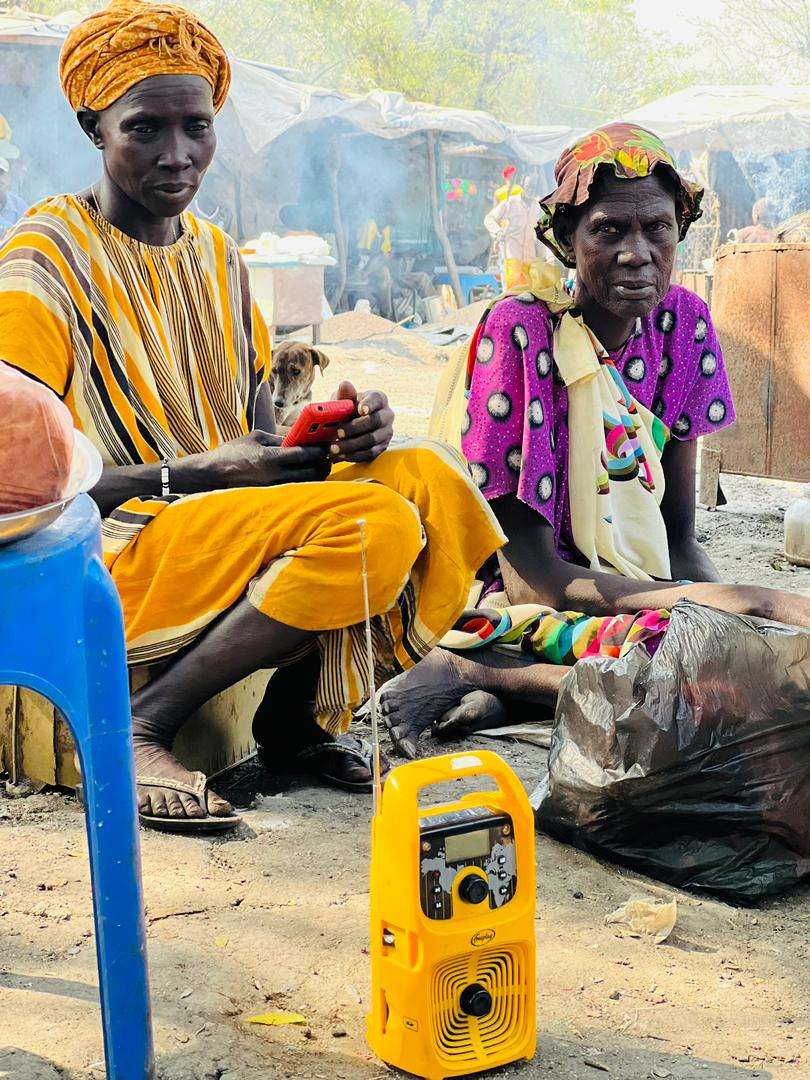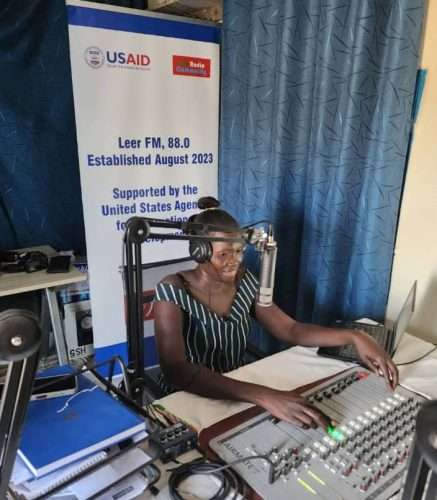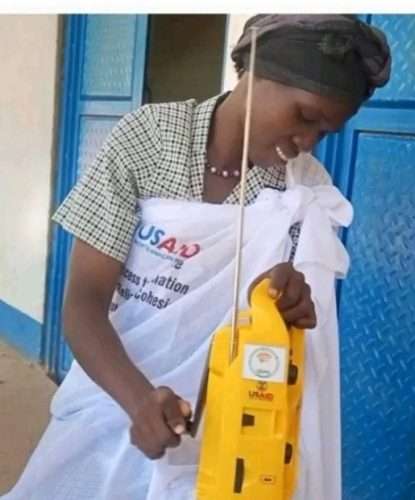
Following a long history of civil war, South Sudan continues to face challenges with access to media and credible information. Before the 2005 comprehensive peace agreement, South Sudan had only one state-run radio station and no newspapers. However, the media landscape has significantly changed since then, with the first US Government-supported independent radio station — the Nairobi-based Sudan Radio Service (SRS) — established in November 2003. This station transitioned to Juba in 2010 as Eye Radio (FM), marking a significant step towards independent media development in the country.
Presently, there are a number of independent media outlets, including many community radio stations supported by the US Government through the United States Agency for International Development (USAID). Online news outlets and a few newspapers do exist and are mainly consumed in Juba. Print media is not as popular as radio due to the nation’s high illiteracy rate. Additionally, independent media lacks financial resources, and local journalists are not well trained in unbiased and conflict-sensitive reporting. There is also a poor understanding of the role and responsibilities of the media by authorities; consequently, journalists are at times threatened, harassed, or arbitrarily arrested and detained.
A priority for USAID is the strengthening of independent media in South Sudan. USAID supports the Association for Media Development in South Sudan (AMDISS) and the Media Development Institute (MDI), to strengthen the capacity of the media and to equip journalists with professional skills. The annual distribution of solar powered radios is increasing rural South Sudanese citizen's access to news and information.

USAID supports AMDISS and MDI to conduct journalism training at the national and state levels for both aspiring and existing journalists from independent media houses. The training teaches practical skills around conflict-sensitive reporting, sensing and combatting misinformation and disinformation, interviewing and news reporting, journalism code of ethics, media law, radio presentation and production, audio editing, videography, and scripting.
One of the MDI student journalist trainees recently said that he was able to apply the knowledge from the training to cover stories about the Misseriya, a nomadic Arab group from Sudan, and the Dinka Malual of South Sudan, in a professional and unbiased approach, while also incorporating conflict-sensitive reporting. This testimony reflects the significant improvement in reporting and highlights the impact of quality journalism training in promoting fair and accurate reporting.
“MDI has equipped me with the knowledge and skills to turn my dream into reality. From how to write news stories, magazine production, video and audio editing, and my favorite — interviewing and camera skills I received from MDI — I will always remain thankful for this chance. I’m thrilled to now advance into my new role as a roving correspondent,” said a former trainee of MDI. MDI offers a 10-month journalism course and a two-month internship for active and aspiring journalists, with an over 95 per cent job placement rate following the course.

Rumors, misinformation, and disinformation remain huge drivers of conflict in South Sudan, triggering tension and creating mistrust between and among communities. To counteract the reach of destabilizing information, USAID distributed over 7,500 solar-powered radios to more than 4,000 individual households and created over 500 listening groups in 13 counties in South Sudan. The radio distribution provides access to accurate and fair information - particularly to people residing in remote, hard-to-reach areas - to mitigate the destructive impact of rumor and misinformation. The radios are preloaded with peace messaging and trauma awareness content in a variety of local languages. Targeted beneficiaries include women, youth, and trader groups. The activity also ensures that the radios are placed in natural community gathering places, such as water points, markets, and local tea shops, to encourage a higher number of listeners.
USAID also rehabilitated and built several community radio stations in some of the most remote parts of South Sudan. These include Leer FM in Unity State, which was destroyed during the 2013 crisis, Akobo FM in Jonglei State, and Pibor FM in the Greater Pibor Administrative Area (GPAA). These radio stations are equipped with solar panel power systems and are critical sources of news and information for rural communities.
A member of the Women Empowerment for Reconciliation and Development (WERD) organization, who conducted the radio distribution activity in Baliet County of Upper Nile state, said the communities were so happy with their radios; it was the first of its kind in this remote county and targeted the most vulnerable people who could never afford a radio before.
The USAID Shejeh Salam program’s media intervention has tremendously improved the impact of media and citizen access to information, particularly for communities residing in remote locations in South Sudan.